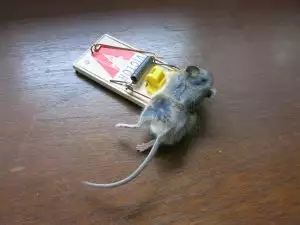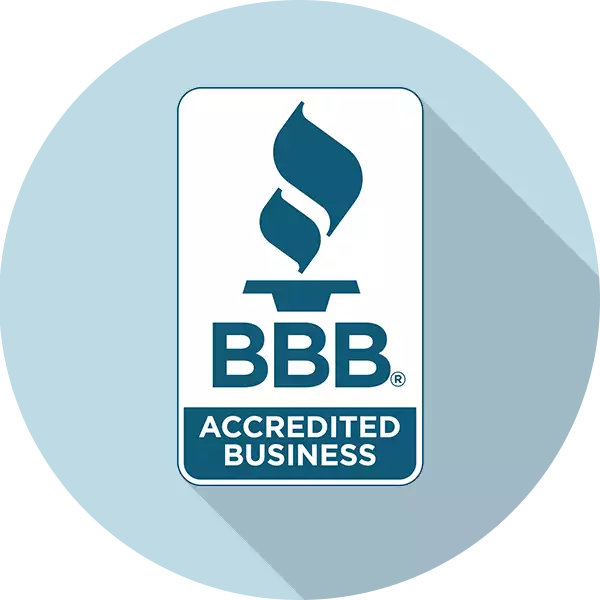Mouse Control Services At Virginia Professional Wildlife Removal Services, LLC.
A full-service animal wildlife trapping, removal and pest control company – Licensed and Insured!
We Provide Both Residential and Commercial Mouse Control Services
Licensed, Insured, & Experienced. Serving All Of Virginia.
Call Our Staff At 1-804-457-2883
For mouse control to be effective, it is critical that you identify a mouse infestation early, because mice can cause a lot of damage to your home. They can transmit diseases to your household, destroy food, clothes, household furniture, etc., damage electrical wiring, and cause a fire hazard. Rodent droppings and damaged infrastructure are also among the multitude of challenges that can result from these uninvited guests. Fortunately, there are things that can be done to get mice out of your home. There are also some great preventative measures that can be taken.
Characteristics of Mice
What do mice look like?
The typical mouse is gray or brown, with little eyes and large ears. The adult is usually between 5 ½ and 7 ½ inches in length with a 3-4 inch long tail.
More Facts About Mice
- Mice can live up to 1 year. While this is not a very long period of time, mice are capable of reproducing up to 10 times in their life.
- Indoor mice will munch on a wide variety of foods; however, they have a preference for seeds and insects.
- Mice are excellent climbers.
- Mice are not able to see color. Their eyesight is not very good, as they have a hard time seeing beyond six inches.
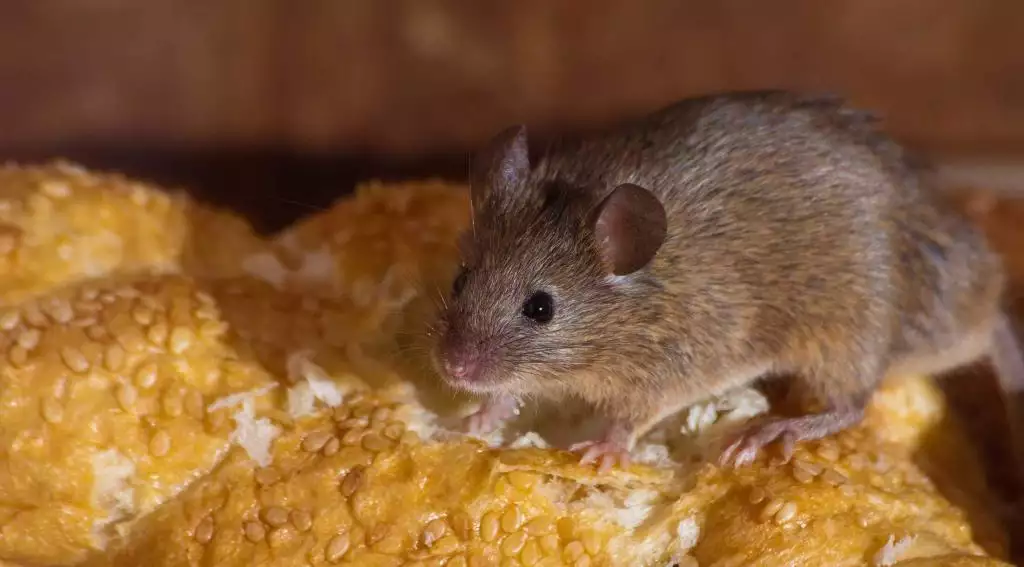
How do I know if I have a mouse infestation?
Mice are crafty little creatures. They can make their way through spaces as small as a dime. In the fall, they end up in homes as a result of their search for food, warmth and shelter.
Here are some signs you will notice when mice are present:
- You may pick up a musky odor in your home. This is the smell of mice urine.
- You will notice droppings of up to ½ inch in length. Mice droppings usually have pointed ends.
- You will also hear sounds such as gnawing, squeaking or scurrying.
- If you find a mouse nest, you can be sure that mice are invading your home. These nests are usually found behind or beneath furniture or appliances.
It is critical that you identify an infestation early, because mice can cause a lot of damage to your home. Don’t hesitate to give us a call and let us help you solve it immediately. All our rodent control technicians are thoroughly trained in dealing with these situations, and we will provide impeccable service to remove these pests from your home and prevent them from coming back in the future. Give us a call today and let’s solve your problem together.
At Virginia Professional Wildlife Removal Services we are constantly striving to advance our education so that we may serve you better.
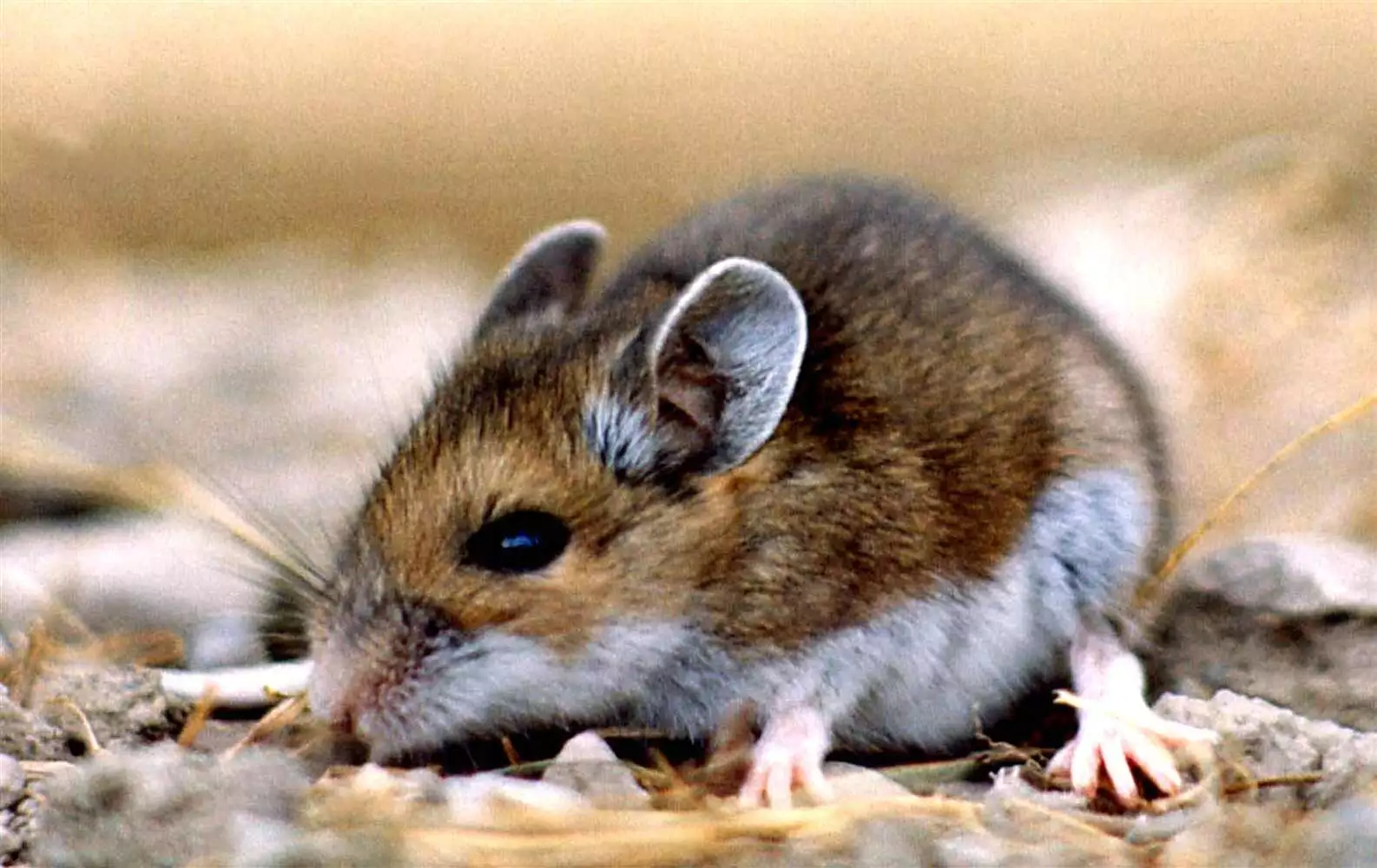
Six Tips for Mouse Control
1. Safeguard Against Entry Points
When designing your home, or settling into a new rented spot, ensure that you rodent-proof the house. This is one of the most effective ways to prevent an infestation. If you eliminate the opportunity for mice to squeeze into your property, your home will have a good chance against roaming mice. This is not an easy task given a mouse’s ability to squeeze through unbelievably small spaces. Nevertheless, if do not have any spaces as big as a nickel or dime, you stand a good chance against them.
2. Make Use of Mousetraps
The handy, traditional mousetrap is still a successful tool in the fight against mouse infestations. Most people underestimate the true state of the mouse population that they are up against. You may need to lay many mousetraps in an effort to catch the mice that are plaguing your property. Be very generous with the mousetraps that you lay. Mix it up as well, and use bait traps, multi-capture live traps, and glue traps along with wooden traps. With this mix, you have a greater guarantee to catch the mice that are trying to take over your property.
3. Lay Mousetraps Strategically
Laying mousetraps is actually a science. Lay the traps perpendicular to walls with the trigger section facing the baseboard. This strategic placement leads the mouse, who loves to run along baseboards, directly into the trap. Mice do not go far from their food sources and nesting areas, so be sure to note droppings and place the traps in the areas that you find them. Rodents are intelligent enough to pick up on mousetraps and avoid them on the next trip, so change the location of the traps frequently.
4. Sanitize Your Property Thoroughly
Be mindful of spills and fallen crumbs. Mice are able to subsist on as little as 3 grams of food a day. Frequently clean your floors and wipe your counters. Be sure to eliminate residue, crumbs and any other food sources. Store food very securely. Secure your garbage container to ensure that rodents cannot get in. Keep in mind that mice have teeth that are sharp enough to bite through almost anything; therefore, plastic is not a good tool to use for rodent control.
Many times, rodents make their way inside your house because they have found comfort on the exterior of your home. Be sure to manicure your lawn and your property grounds in general. Cut down overgrown grass so that you do not give mice an area to nest. Actively search for burrows and nesting areas to ensure that mice do not get too comfortable on your property. Using gravel along the foundation of your home is also a good preventative measure. Avoid waste and clutter around your property, and you will be able to spot any visit from mice.
6. Get A Cat
The war between Tom and Jerry is indicative of what takes place in the real world with cats and mice. Having a cat around will significantly deter mice from invading your property. Cats take pleasure in hunting and killing mice. They are easy to own and will be a good companion for you and your family. It is customary for farm owners to use cats to control mice. Depending on the size of your property, you may need to own more than one cat. You can also have a dog or two because they may get in on the excitement of chasing away rodents.
Apply these tips for mouse control and enjoy peace of mind at home. If you currently have an infestation, it is wise to contact a professional pest control service. We will be able to eradicate these furry visitors and help you implement strategies to prevent future infestations.
Damage That Mice Do to Your Home or Building
Mice are so tiny that you never really expect anything from them. How could something so small possibly harm you or your home?
Yet the truth is that mice are just as bad as any other animal out there. They do just as much damage as rats, raccoons, opossums, or any of the other animals that might get into your home.
What makes them a particular pain to deal with is their small size. They can find their way into the tiniest of holes. That makes it very difficult for someone to remove them all on their own. That’s why Virginia Professional Wildlife Removal Services is here to help.
Damage Done
While the exact details of the damage will differ between homes and infestations, there are some parts of the home that are commonly damaged by these small rodents. Here are just a few of them.
-
Wires
Mice love to chew on wires. These rodents have teeth that never stop growing, so they have to constantly gnaw on things to keep their teeth in good shape. As a result, they’ll usually end up chewing through your wires, as the external material is great for their teeth.
This can cause some minor damage to your electronics, as they run out of power. Yet it can also do a lot of damage to your home, especially when the wire is left exposed. Not only will stepping on the exposed wire cause electrocution, but it might even start a fire that’ll bring down your entire home!
-
Pipes
Your wires aren’t the only thing that helps mice with their tooth problem, as pipes are another prime target. The hard shell that surrounds pipes is perfect to gnaw on, so mice will start biting at your home’s pipes.
It takes a long time for them to do any real damage to your pipes, but they’ll eventually get there if you don’t clear these small rodents out of your home. Once they’ve thoroughly gnawed on your pipes, the plumbing might start to leak or it could even burst. Once that happens, you’ll be looking at a lot of water damage done to your home.
-
Wood
Wooden furniture and structures are also vulnerable to mice. These are actually some of their favorite things to gnaw on. As a result, your furniture will be weakened to the point that it breaks under its own weight. The same goes for any wooden beams used to support your home.
-
Insulation
Mice also like to rip apart your home’s insulation. They tear it to shreds before taking those scraps to warm their nests.
Our Service Areas in Virginia
We provide wildlife removal, wildlife control, animal removal, animal control, animal trapping and pest control services throughout Virginia including the following counties, cities and towns: Afton, Albemarle County, Alexandria, Amelia County, Annandale, Arlington, Ashburn, Ashland, Barboursville, Bellwood, Belmont, Bensley, Bermuda Hundred, Bon Air, Boyd Tavern, Brandermill, Bumpass, Burke, Central VA, Centreville, Chamberlain, Charlottesville, Chesapeake, Chester, Chesterfield County, Colonial Heights, Crozet, Cuckoo, CVille, Dale City, Doswell, Dumbarton, Earlysville, East Highland Park, Enon, Ettrick, Fairfax, Fair Oaks, Ferncliff, Fluvanna County, Fredericksburg, Genito, Glen Allen, Glenora, Goochland County, Gordonsville, Gum Spring, Hadensville, Hampton, Hampton Park, Hanover County, Harrisonburg, Harrogate, Hening, Henrico County, Highland Springs, Hopewell, Innsbrook, Jefferson Davis, Kents Store, Keswick, Lake Anna, Lake Monticello, Lake Ridge, Lakeside, Laurel, Leesburg, Lewiston, Lignum, Locust Grove, Louisa County, Maidens, Manakin, Manakin-Sabot, Manassas, Manchester, McLean, Montrose, Motoaca, Meadowbrook, Mechanicsville, Midlothian, Mineral, Moseley, Newport News, Norfolk, North Courthouse, Northern Virginia, North Garden, NoVA, Oilville, Orange County, Palmyra, Pantops, Petersburg, Portsmouth, Powhatan County, Reams, Reston, Mouse Control in Richmond, Richmond County, Robious, Rockville, Rockwood, RVA, Salisbury, Sandston, Sandy Hook, Scottsville, Shannon Hill, Short Pump, South Rockwood, Spring Run, Staunton, Stoney Point, Suffolk, Tidewater, Troy, Tuckahoe, Va, Varina, Virginia, Virginia Beach, Waynesboro, Williamsburg, Winchester, Winterpock, Woodlake, Wyndham, and the surrounding areas of Virginia.
If you are dealing with mice, make sure to give Virginia Professional Wildlife Removal Services a call. We’re always here to help, and we’ll remove those tiny critters in no time. Contact us today to learn more about our services or to schedule an appointment!
Please Complete Our Simple Contact Form Below:
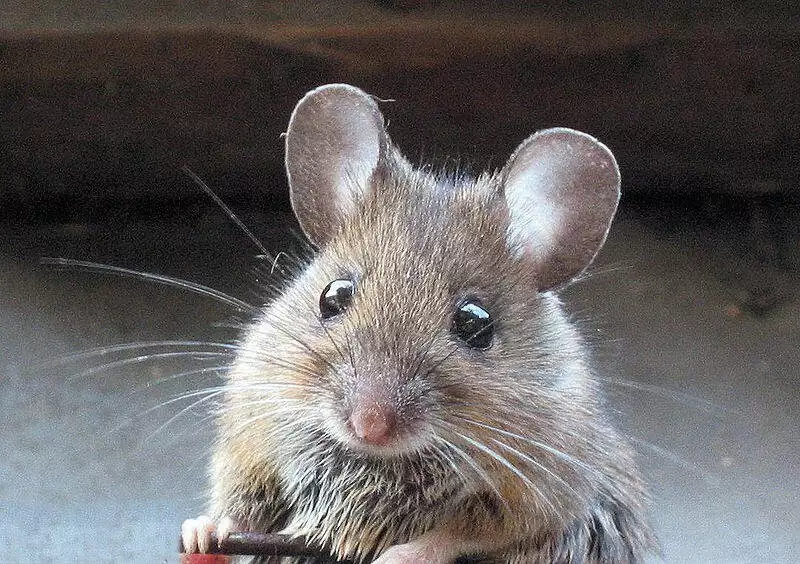
Mice Removal Process
While smaller and more innocent-looking than rats, mice can still be a major source of headaches. They’re known to carry plenty of diseases and parasites, and they have a nasty habit of chewing on your furniture. So how do you remove them?
Trapping Mice
The best way to get rid of mice is to trap them. They aren’t all that bright and multiply quickly, so it’s advised to trap them early on before they get out of hand.
1. Pick a Trap
While there are many traps out there that can get the job done, it’s important to pick the one that’s going to fit your needs.
Most people are familiar with the snap trap. They’re easy to set up, cheap, and do a good job of killing the mouse. Yet they can occasionally fail to give a quick and humane death.
Another popular trap is the glue trap. These are thin boards of cardboard or plastic with a strong adhesive attached to one side. They’re easy to set up but can only be used once and are inhumane.
Live traps can be a great choice if you aren’t keen on killing the mice, but keep in mind that handling a live mouse can be quite dangerous
You could also opt to use an electric trap. These give the animal a humane death and can be used repeatedly, but they’re on the more expensive side.
2. Place the Trap
Where you place the trap is crucial. Be sure to study the mice’s behavior and find their nest, before setting up the trap near it. It’s also a good idea to set the trap at a ninety-degree angle to the wall to maximize your chances of catching the pests.
3. Picking the Right Bait
Bait plays a major role in catching a pest as they lure the mouse into doing something it usually wouldn’t. The best baits you can use are cheese, peanut butter, and marshmallows.
4. Handling the Caught Mouse
Once you catch a mouse, it’s important to handle it carefully to prevent catching diseases or coming to harm. This can be done by wearing gloves. If you’re relocating a live mouse, you should first check with your local authorities to see if it’s allowed, and then move it at least three miles away so it can’t get back.
Repelling Mice
If you want to get rid of the mice without trapping them, you could try using repellents. While most recommended repellents – ammonia, mothballs, and sonic devices – can’t consistently solve your mouse problem, there is one repellent that does work.
Cats are amazing at getting rid of mice. They can repel mice with their presence and will even catch any foolish enough to wander out. That’s why you should get a cat to both solve your mouse problem and give you a cute companion. Just be warned that some lazier cats might just let the mice run free.
Preventing Mice
It should come as no surprise that the best way to get rid of mice is to prevent them from showing up in the first place. That’s why you should seal any entries in your home. These can be massive gaping holes or can be small openings the size of a coin, so you’re going to have to be thorough.
Another great way to keep mice out is to keep your home clean and tidy, as this reduces the food available for them. And without food, these critters aren’t going to bother coming to your home.
Professional Help
If you’re already dealing with mice in your home, you should consider calling a professional to help sort out your problem. They have the know-how, gear, and years of experience to quickly remove any and all mice in your home. Need more tips on mouse control? Read our blog on 5 reasons why you need a professional pest control service.
How to Get Rid of Mice in Your House
Mice find their way into people’s homes in search of food, shelter, and warmth. And because of their high rate of fecundity, a pair of mice in your home can quickly multiply in numbers. Mice are undesirable because of the severe property damage they cause. By chewing wood, tearing up wires and insulation, they leave destruction in their wake. Not to mention the food contamination they cause and diseases (such as Hantavirus, Leptospirosis, and Salmonellosis) they spread through their urine and droppings.
Little wonder no one wants anything to do with these nasty critters. In this post, we share some of the proven tips we use at Norcal Wildlife Removal to get rid of mice from homes.
Let’s get started.
-
Eliminate Entry Points
First off, you have to realize mice don’t just magically appear in your house. If you see mice around, then they must have gotten in through some entry holes. That’s why you need to get rid of such entry holes.
Doing so can be challenging because mice can squeeze themselves through small holes. Here’s a rule of thumb: If the hole is as large as the diameter of a pencil, chances are a mouse can get in through it.
Therefore, you need to thoroughly inspect your property to identify such openings in the foundation and walls. Thereafter, those openings should be sealed with steel wool or caulk. Avoid using rubber, plastic, or wood because mice can easily gnaw through them.
-
Use Mouse Traps
Mousetraps have been around for centuries. Yet, they remain one of the most effective ways of dealing with a mouse infestation problem. All you need to do is set the traps in areas frequented by mice – like along walls and behind trash cans – with the appropriate bait.
Mice are attracted to high-calorie sweets and fatty foods, so foods like peanut butter, cheese, marshmallows, gumdrops, and beef jerky are appropriate baits.
Mousetraps vary by type, design, and function. Here are some of the most humane ones:
Snap traps: These traps use a snap mechanism to deliver immense force on a mouse that tries to pick up the bait. It is intended to kill the mouse quickly and humanely.
Electric traps: These traps lure mice into a chamber where a fatal electric shock is delivered to them.
Live traps: These mouse traps are cages used to catch mice without killing them. The animal can then be killed after it has been caught.
Glue traps are also effective, but they are not recommended because they are inhumane, causing undue suffering to the animal.
-
Eliminate Food Sources
Since mice are attracted to food, you have to ensure there are none available for these nuisance pests. Wipe down counters and clear off crumbs and food residues lying on the floor. Secure your foodstuffs in an airtight aluminum container to prevent access.
What’s more, do not keep pet food outside. Also, do well to remove seed crumbs from underneath your birdfeeder.
The leftovers in your garbage might look disgusting to you, but they are a delicacy for mice. That’s why you need to ensure your trash cans are properly closed. If mice can’t get food from you, that’s one less incentive for them to reside there.
-
Observe Good Sanitation
Let’s get one thing straight: good sanitation won’t necessarily get rid of mice, but poor sanitation is sure to attract them. That being said, you want to ensure that your house is clean at all times.
Trim bushes around your property that can serve as potential hiding spots. Ensure that your firewood is positioned far from your house because mice find the warmth and protection it offers comforting.
-
Apply Repellents
There are several repellents in the market that claim to be effective for deterring mice. Examples include peppermint, cayenne pepper, cloves, and ultrasonic repeller.
However, know that most repellents are not very effective. And if there’s still easy access to food and shelter in your home, mice will put up with the discomfort caused by such repellents.
-
Get a Cat
As you’d well know, cats and mice are eternal enemies. Having a pet cat can help you deter these nasty critters from dominating your home.
Wrap Up
Getting rid of mice can be challenging, especially if you have limited knowledge about mouse behavior. That’s why it may seem you have an unending mouse problem, irrespective of what you do.
Here’s where working with equipped and knowledgeable professionals can save you from the stress of mice infestation. At Virginia Professional Wildlife Removal & Pest Control Services, we can help you put an abrupt end to your infestation problem.
Discover effective rodent control strategies in our latest post.
Animal Sounds In My Attic, Walls, Ceilings Or Crawlspace? What Type Of Animal Could It Be?
If you are hearing animal sounds in your attic, walls, ceilings or crawlspace we can help. Our local animal removal and pest control specialist are professionally trained to help you address all of your animal control needs in the Henrico, Glen Allen, Richmond, Midlothian and Charlottesville Virginia areas. Call us today at (804) 457-2883.
VPWRS Can Solve Your Problems!
- Scratching Noises In Your Attic, Walls, Or Crawlspace?
- Flying Squirrels In Your Attic Or Walls?
- Unwanted Animal Wildlife In Your Home, Business or Property?
- Bats In Your Attic?
- Birds In Your Dryer And Bathroom Vents?
- Problem Bird Or Bat Infestation?
- Animals In Your Chimney Or Fireplace?
- Digging In Your Lawn Or Under Your House, Deck Or Garage?
- Dead Animal Problems?
- Animal Odor Problems?
- Chewing Sounds In Your Attic Or Crawl Space?
- Animals Damaging Your Wiring, Insulation, Fascia, Soffits, And The Wood In Your Home?
- Animal Feces Removal?
- Attic Restorations And Clean-Up Needed?
VPWRS Extensive Services
Virginia Professional Wildlife Removal Services provides nuisance wildlife removal, animal control, predator control, pest control, nuisance wildlife exclusion, and wildlife clean-up services.
We have experience handling bats, beavers, birds, Canada geese, chipmunks, coyotes, deer, foxes, groundhogs, mice, moles, raccoons, rats, opossums, otters, skunks, squirrels, snakes, voles, muskrats, bobcats, Copperhead snakes, pigeons, and other species of Virginia wildlife.
We operate our business within accepted industry standards and best practices, and in accordance with local, state, and federal laws.
